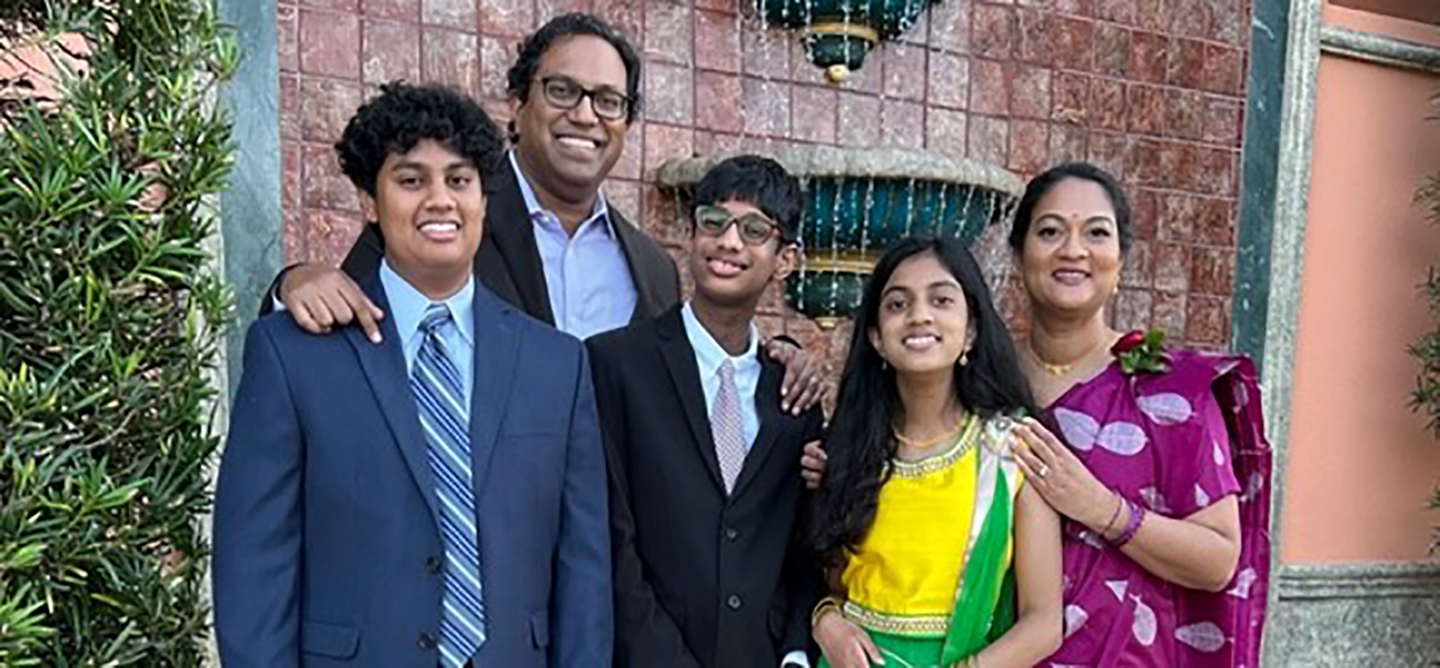Researcher Brings Lab Discoveries into the Community
When Dr. Susan Vadaparampil came to South Florida with her family in the 1970s, she already knew that a career in medicine was in her future. After all, almost everyone in her family worked in the medical field.
But for Vadaparampil, a career in medicine took a different direction.
“I was always fascinated by research,” she said. “The idea of doing something impactful on a larger scale always appealed to me.”
In her role as Moffitt Cancer Center’s associate center director of Community Outreach, Engagement and Equity, Vadaparampil’s work directly impacts different areas of the community in a positive way.
The office works to uphold Moffitt’s commitment to maximize the impact of its research through engagement and equity in the cancer center’s catchment area, which includes 15 counties spanning West Central Florida, and beyond. The goal is to place health equity at the forefront of its research and ensure that the work is informed by ongoing and bidirectional exchange of information and ideas between our researchers and community stakeholders.
While that’s the official purpose of Community Outreach, Engagement and Equity, Vadaparampil simplifies what she does to help others understand her passion for her work.
“I always explain my job by sharing that I’m a researcher in the field of public health and cancer prevention and early detection,” she said. “We get the things discovered in a lab out into the health care setting and communities in a way that benefits the larger community.”
Perspective Makes Us Stronger
Being part of a minority community herself, Vadaparampil has a unique view of how Moffitt can impact different groups. In short, she knows what it means to not be part of the majority.
“Coming from that place and starting with the humility that there are so many things I don’t know has been helpful in this role,” Vadaparampil said. “Especially here at Moffitt, where we are trying to reach so many different segments of the community with information, education and screenings, that perspective helps.”
Nothing happens overnight, and Vadaparampil is committed to the journey to reach all minority communities in the Tampa Bay area and throughout Florida with the important message of cancer screening and education.
Vadaparampil knows she and her team are succeeding when the communities targeted by her outreach contact her about the experience.
“I love the settings where you get to hear from the people who are in those communities and learn what is important to them,” she said. “Moffitt has an intentional way of thinking about that perspective and that makes it fun to have this job.”
While Vadaparampil was raised in South Florida from the age of 4, she is still very connected to her roots in India. Her husband is also a native of India, and both want their three children to be familiar with their cultural heritage.
“But I feel I am looser about that than what I grew up with — in a good way,” Vadaparampil said. “We keep some of the traditions from our culture as we continue raising the kids.”
That includes referring to older relatives and close friends as aunt or uncle, even if that is not biologically correct. It’s a sign of respect in the culture, she said, and incorporating that is important to the family roots.
“We have a big family,” Vadaparampil said. “And we try to celebrate a lot of the holidays as we would in India. Even with American holidays like Thanksgiving, we have Indian food with the turkey. So that cultural connection is always there.”
How Cultures Impact the Workplace
Vadaparampil said that while her race and ethnicity are an important part of her identity, she has also come to appreciate how it may impact the way she engages in her work environment. Some values that are inherent to her culture may not always be the ones that contribute to success in the work environment. For example, being accommodating of others, while important to build teams, can also put you at a disadvantage. Sometimes, you may choose harmony of the group over speaking up or advocating for yourself.
Other aspects like self-promotion or taking credit for success may feel counter to cultural norms of being humble.
“It’s been a struggle over the years to strike the balance of these competing approaches at work,” she said.
But experiences in the community can be much less subtle.
“Yes, I’ve experienced some things, as have my kids and my husband,” she said. “Of course, those are things we wouldn’t want anyone to go through.”
Vadaparampil said people have asked her when she will be returning to her home country or how she speaks English so well. Other times, patients will appear surprised that she has no Indian accent. She distinctly remembers that each child around the time of preschool came home and shared that classmates asked them why their skin was dark.
“Those reactions are based on stereotypes and immediate impressions,” Vadaparampil said.
But, Vadaparampil says that in her role, she has learned the importance of moving beyond stereotypes to understand the rich history of communities that contribute in so many ways to the Tampa Bay area.
“A lot of Indians from the state I was born in came to the U.S. in the 1970s when there was a nursing shortage and my family came here during that time,” Vadaparampil said. “I grew up with people who were all in various parts of the medical profession. My mom was a nurse for over 30 years and loved her job. But I carved out my own path that blends my traditions, culture and values with the new opportunities offered in the U.S.”



